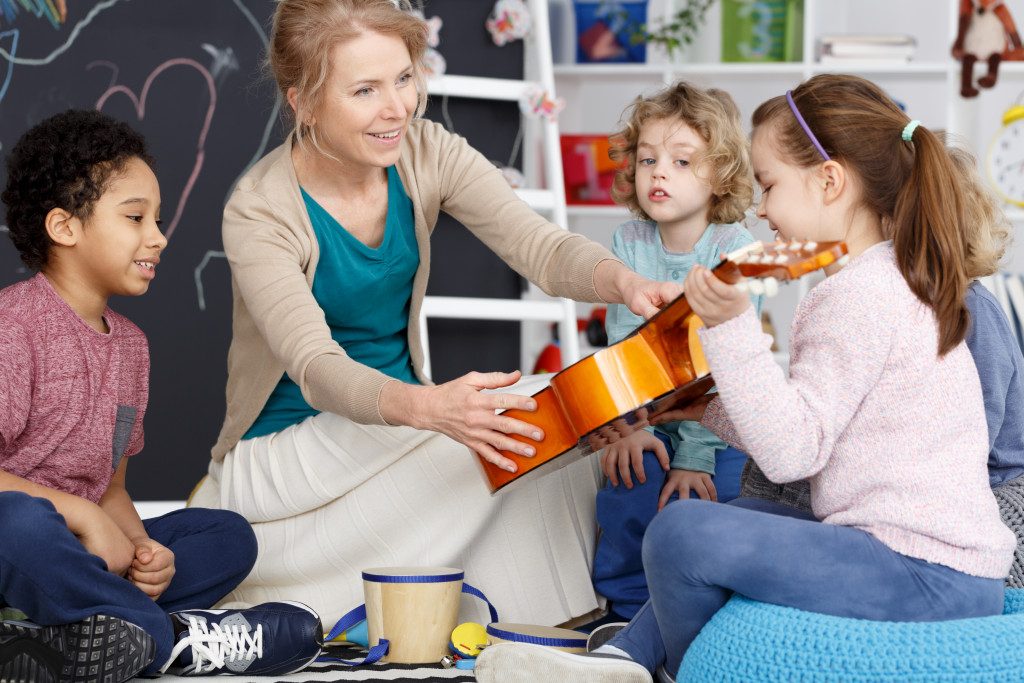Music plays an essential role in various cultures around the world. You’ll find music present in all aspects of our lives, from the theater performances on Broadway to the national anthems performed before a sports competition.
At home, parents use music to calm, express love, and engage with their children. What not many people know is that listening to and learning about music has a variety of positive effects on children of all ages.
Music and Cognitive Development
A study from the University of Southern California’s Brain and Creativity Institute discovered that musical experiences—whether listening to music or learning to play a musical instrument—speed up brain development. It improves language acquisition, mathematical knowledge, and reading skills.
Aside from academic achievement, music enhances all areas of child development, such as:
- Intellectual skills. Memorizing notes and lyrics strengthens a child’s memory skills.
- Motor skills. Dancing to music helps them learn how to move.
- Overall literacy. Exposing children to music helps them learn to identify sounds and understand the meanings of words.
- Social-emotional skills. Learning to sing or play an instrument develops their confidence and self-expression.
Other Benefits of Music
Music also helps children in various aspects toward their growth, like:
-
Connecting with other people
Children build relationships by connecting with others who share the same interests. Music encourages bonding among children, whether it’s working for a school performance, starting a band, or singing along together for the fun of it.
-
Stress relief
Music helps improve moods and reduce burnouts. As children enter the higher grades of the school system, they might feel overwhelmed with the academic workload. Other children may have stressful home lives, so they use music to cope with these situations.
How You Can Help Your Child’s Development Through Music

Here’s how you can help your child’s development through music:
-
For infants
Infants understand melodies before words, and hushed tones can soothe them to sleep. Sing to them while you and your infant go about your day, from waking up and eating up to going to bed.
-
For toddlers
By the time your child becomes a toddler, they learn more through repetition. Sing them songs like nursery rhymes that are easy to remember.
-
For preschoolers
Most preschoolers enjoy singing without feeling self-conscious about their abilities. They also enjoy songs about familiar things like animals, play activities, and people. Sing nursery rhymes with an accompanied dramatization in finger puppets or toys.
-
For school-age children
During this age, children start expressing their preference for different types of music. They also start showing interest in singing or playing musical instruments like the piano or guitar. Develop their skills by enrolling them in a music school.
-
For teenagers
Teenagers use music to form friendships and set themselves apart from other kids. They’ll hang out with other children who share the same taste in music, sharing activities like listening to music with friends, playing an instrument together, or attending a musical event.
We can enjoy music the moment we were born, experiencing it through various activities as we grow up. Aside from evoking emotions, music also helps children develop as they grow up. It may not make children smarter, but music brightens and improves their lives, from gaining a new language to developing their social skills.

